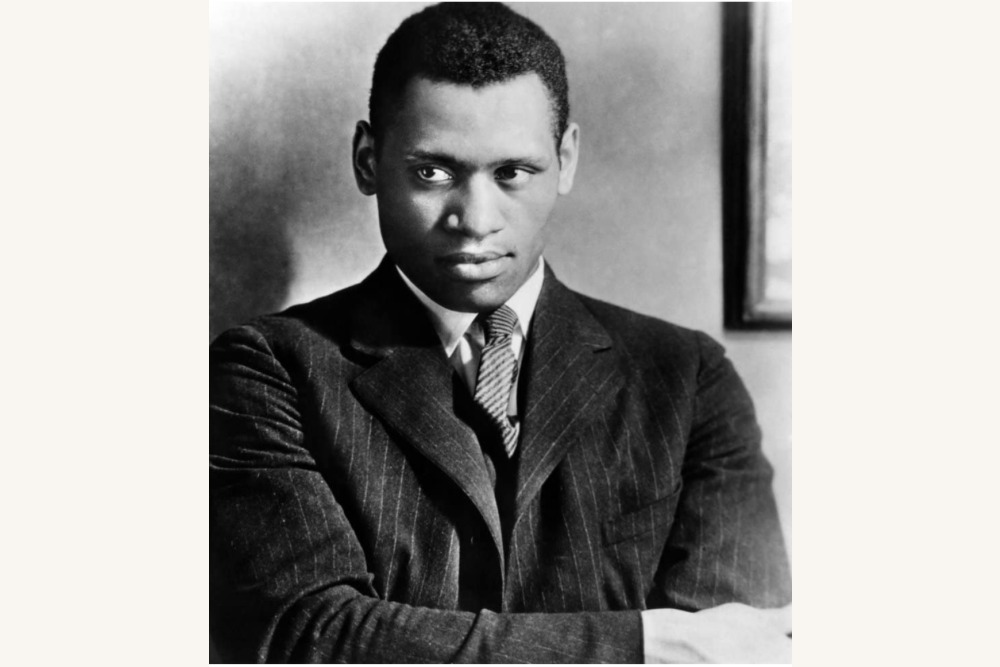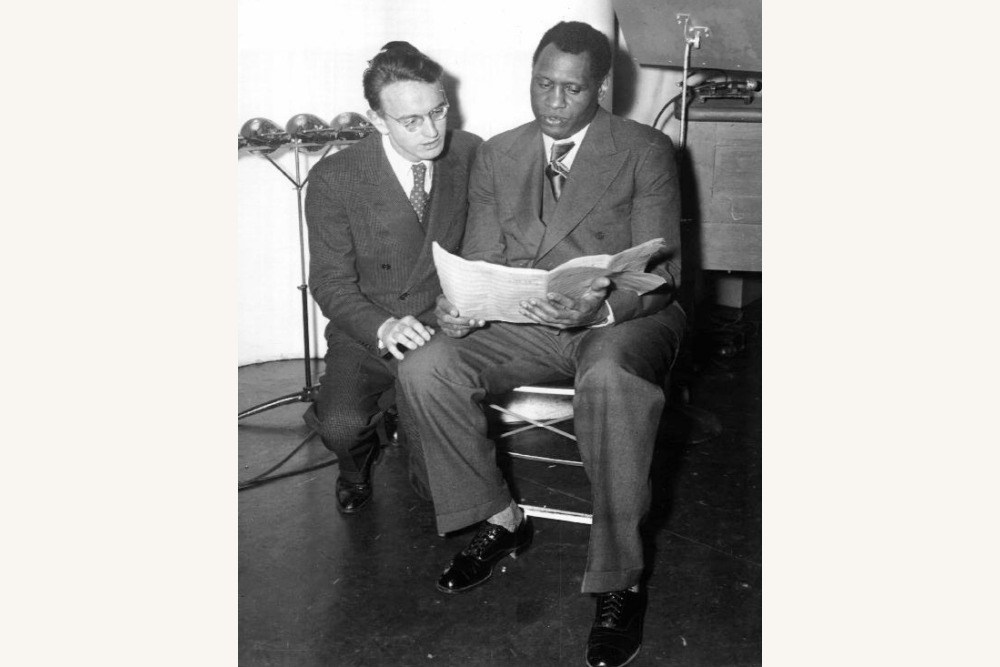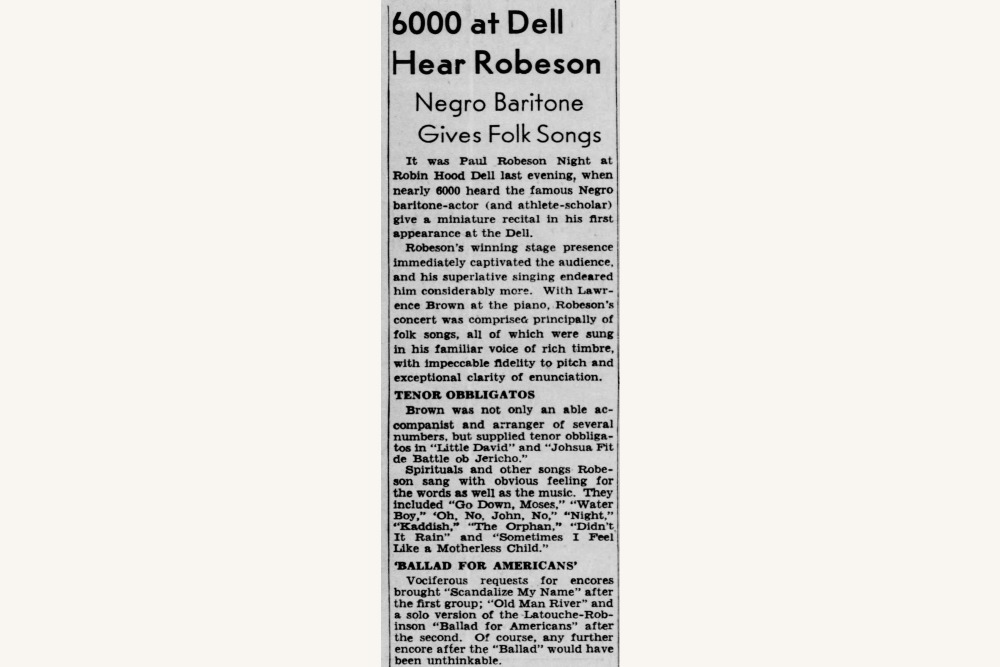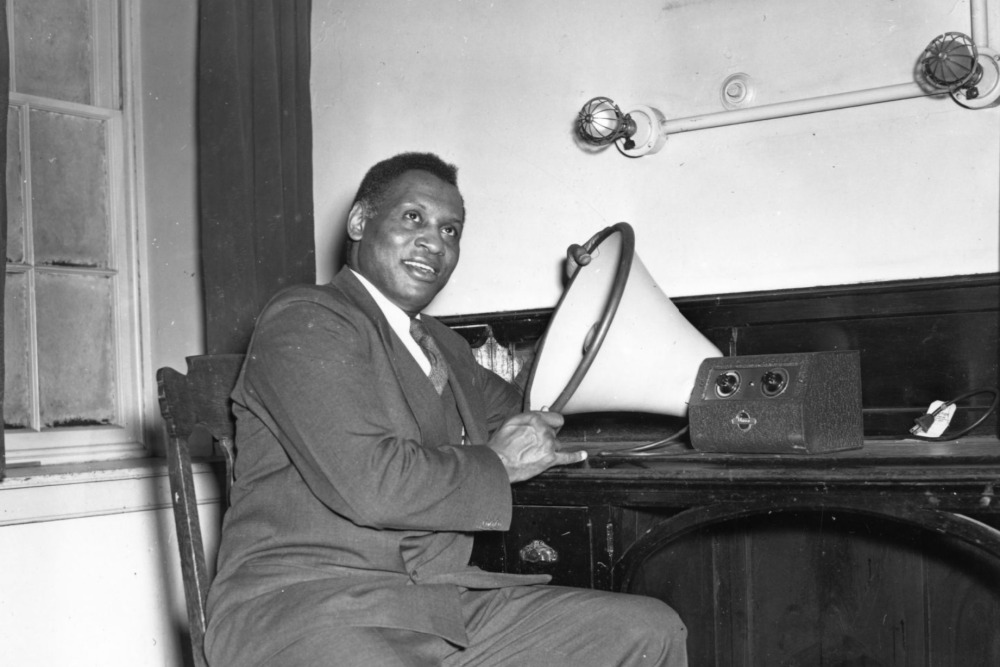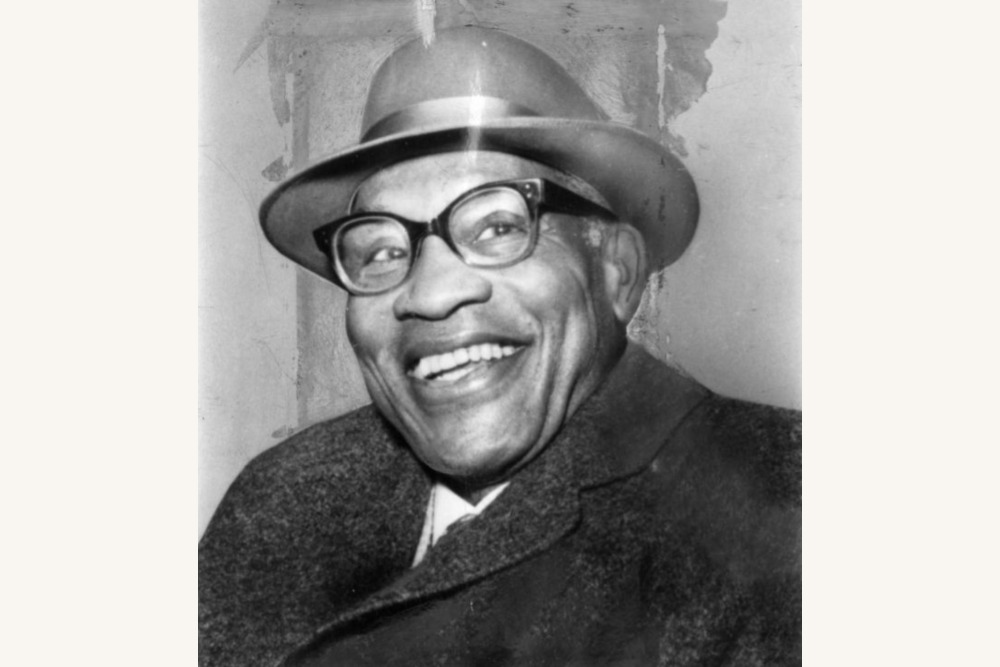From the Vault: Paul Robeson at the Robin Hood Dell
MANN MUSIC ROOM: VAULT
Blog Entry by Jack McCarthy, Historian, The Mann Center for the Performing Arts
The Mann Center traces its history to the Robin Hood Dell, which opened in 1930 in East Fairmount Park as a summer home for The Philadelphia Orchestra. In 1976 the organization moved to a new venue in West Fairmount Park. Originally called Robin Hood Dell West, it was later renamed the Mann Music Center in honor of its longtime director and benefactor Frederic Mann, and subsequently renamed the Mann Center for the Performing Arts.
Paul Robeson, the great African American actor, singer, athlete, and activist, spent his final years in West Philadelphia in the 1970s, about five miles from the Robin Hood Dell, where he had performed to large, enthusiastic audiences thirty years earlier. A true Renaissance man, the multi-talented Robeson excelled in many areas—sports, music, theater, film—while working tirelessly for civil rights and racial justice.
Born in 1898 in Princeton, New Jersey, in 1915, Paul Robeson won an academic scholarship to Rutgers College (now University), where he lettered in several sports, was a two-time All-American in football, and was class valedictorian. In the early 1920s, he pursued a law degree at Columbia University while playing professional football for the fledgling NFL. At the same time, he began to pursue acting, where he gained some early notoriety. He received his law degree in 1923 and briefly worked for a law firm, but quit due to racial discrimination and focused on his promising acting and singing career. His commanding stage presence and powerful baritone voice soon brought him great success, both in the U.S. and Europe.
By the time Paul Robeson made his debut at the Robin Hood Dell on August 1, 1940, he was a major star in movies, the theater, on records, and on the concert stage. As a singer, he was known particularly for his interpretations of Negro Spirituals, the great body of religious folksong created by enslaved African Americans in the South in the pre-Civil War era. While originally folk music, in the late nineteenth century spiritual songs entered the concert realm, in polished, artful arrangements performed by African American choirs and singers. Robin Hood Dell audiences had heard such arrangements of spirituals in a series of concerts by the Hall Johnson Choir in the early 1930s.
In reviewing Robeson’s 1940 Robin Hood Dell debut, the Philadelphia Inquirer, under the headline “6,000 at Dell Hear Robeson – Negro Baritone Gives Folksongs,” noted that “Robeson’s winning stage presence immediately captivated the audience, and his superlative singing endeared him considerably more … Robeson’s concert was comprised principally of folks songs, all of which were sung in his familiar voice of rich timbre, with impeccable fidelity to pitch and exceptional clarity of enunciation.” Accompanied by his longtime pianist Lawrence Brown, Robeson sang well-known spirituals such as “Go Down, Moses,” “Sometimes I Feel Like a Motherless Child,” and others. The Inquirer review noted that after the main part of the program, “vociferous requests for encores” prompted several more numbers, including “Old Man River,” the song from the 1927 musical Show Boat that Robeson had made famous on stage and screen, and “Ballad for Americans,” a ten-minute patriotic cantata composed in 1939 that became one of his signature concert finales.
Paul Robeson appeared annually at the Robin Hood Dell from 1940 to 1943, drawing large, appreciative audiences each time. “11,000 Acclaim Paul Robeson At Dell” ran the August 1, 1942 headline of the Philadelphia Tribune, the city’s African American newspaper. While his renditions of Negro spirituals were always a highlight, Robeson’s repertoire expanded in this period to include folk songs of other nations and vocal pieces from the western classical tradition. In his final Dell appearance, on July 30, 1943, he sang English, German, and Russian folks, pieces by Felix Mendelssohn and Modest Mussorgsky, and several Negro spirituals. His multi-song encore concluded, as usual, with “Ballad for Americans.”
That was Robeson’s last appearance at the Robin Hood Dell. By the mid-1940s his increasing social activism and out-of-the-mainstream political views, including staunch support of the Soviet Union, had made him a controversial figure, significantly curtailing his musical career. Robeson remained politically active throughout the 1940s and 1950s, and in the late 1950s and early 1960s lived and concertized extensively overseas. He then began to suffer serious physical and mental health issues. He returned to the United States in 1963 and in 1968, a widower and in poor health, moved to Philadelphia to live with his sister at 4951 Walnut Street in West Philadelphia. He died on January 23, 1976, at the age of 77 at Presbyterian-University of Pennsylvania Medical Center, as the new Robin Hood Dell West (later Mann Music Center) was being built a few miles away.
